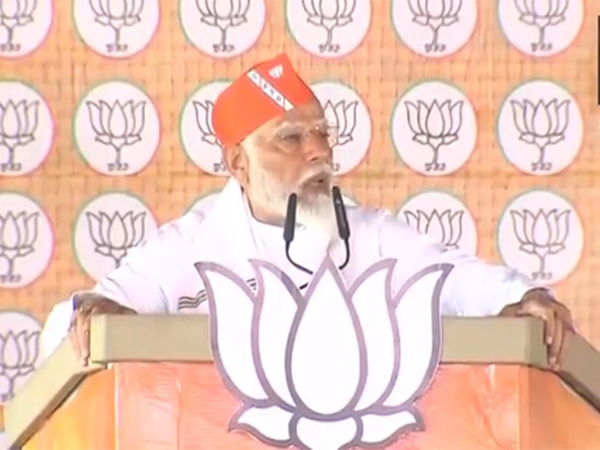Is India's public health in good hands? Probably not with PHFI running the show

Research institutions form an integral part of any nation's public health setup. A prime example of this in India is the Public Health Foundation of India (PHFI).
The PHFI guides the Centre on a variety of matters, from how to run the National Rural Health Mission to the execution of the promised 'universal health coverage'. PHFI also runs various public health schools, including the Indian Institutes of Public Health.
With such power to influence policy and decide the future of India's public health, a body like the PHFI such should obviously be an autonomous and neutral body. But is that really the case?
A history of controversy
The PHFI was co-founded by the Bill and Melinda Gates Foundation and the UPA government as a public-private partnership venture.
But, over the years, it has come under much criticism for not making its finances public, for accepting funds from various pharmaceutical companies and having representatives from pharma companies on its board.
The issue is, since its inception, the PHFI has done little to address these serious criticisms. And this criticism is not unfounded.
Ritu Priya Mehrotra, professor of Social Medicine and Community Health at the School of Social Sciences at Jawaharlal Nehru University says the best example to consider is the case of Pentavalent, a vaccine that has claimed the lives of infants across Sri Lanka, Bhutan, Vietnam and India, and which the PHFI supports heavily.
Pentavalent vaccine is supposed to protect against five major infections through one shot. This includes diphtheria, tetanus, pertussis, hepatitis B and Haemophilus influenzae.
In 2011, the Union Health Ministry conducted an investigation into 54 infant deaths in Tamil Nadu, concluding that 'adverse events following immunisation' (AEFI) were observed after administering Pentavalent. In Vietnam, since the vaccine was first used in 2007, at least 63 children have died after vaccination. Vietnam's health ministry suspended the vaccine in May 2013 after the death of nine children.
However, the reply to an RTI filed by various NGOs showed that the strategic plan for the Universal Immunisation Programme (UIP) prepared by the PHFI for the government suggested that the Health Ministry double its spend on Pentavalent from Rs 312.7 crore in 2013 to Rs 773.8 crore in 2017.
"The ministry's decision is to go ahead with the plan of investing in Pentavalent," said a ministry source.
Dr Gopal Dabade of the All India Drug Action Network said that the PHFI and the Global Alliance for Vaccines and Immunisation (a global public-private foundation) are responsible for the phased introduction of Pentavalent in India.
Members under the scanner
It's not just Pentavalent that has led to criticism and distrust of the PHFI. Many activists believe that Pentavalent is being endorsed due to pressure from pharmaceutical companies.
A look at its current governing body, formed at its 2015 AGM, reveals a mix of members from government and non-government backgrounds.
But, disturbingly, out of 28 members, 11 have almost no experience in the public health field. This is especially so because the Health Ministry seemingly trusts the body, which is headed by Infosys founder NR Narayana Murthy (chairperson of the executive committee), to frame crucial health guidelines for the Centre and the states to follow.
Here are some of the members of the PHFI general body about whom questions have been raised:
1. Gautam Kumra/McKinsey
Kumra, an executive with global management consulting firm McKinsey & Company, is a member on the governing body of the PHFI.
McKinsey's website says Kumra has extensive experience in areas including healthcare, and is credited with helping "one of India's leading pharmaceutical companies define its 10-year vision, redesign its organisation and upgrade its capabilities to execute the vision".
It also states that Kumra "has also worked with one of world's largest multinationals to set its agenda for growth in India - and reorient its organisation and operating model to compete with aggressive local companies".
Catch reached out to McKinsey for comment via email, but the company didn't respond for 48 hours.
It had previously informed a national daily that "the consultancy does not have a working relationship with the PHFI. Gautam Kumra, a senior partner at McKinsey & Company, is a member of PHFI's governing board, but in an entirely personal capacity as a healthcare systems expert, and not as a representative of McKinsey".
But McKinsey has, in the past, collaborated with the Organisation of Pharmaceutical Producers of India, and published reports on the potential growth of vaccines and drugs in India.
Prashanth Vasu, partner with McKinsey & Company, is also a part of the PHFI board.
McKinsey India senior partner Rajat Gupta was also a senior board member of the PHFI before he got arrested for securities fraud.
McKinsey is also a crucial partner of the National Health Service in the UK. But the media in the UK had blamed the consultancy for lapses in the system.
The Daily Mail once wrote of it: "The firm that hijacked the NHS: MoS investigation reveals extraordinary extent of international management consultant's role in Lansley's health reforms."
2. Raj Mitta
Mitta is chairman of Essential Value Associates Pvt Ltd, a "boutique consulting firm that boasts of a specialised clientele of CEOs and chairmen from various corporate entities".
There is little information available on whether this firm is or has been involved in anything to do with healthcare, but judging from the profile and background of the company, it seems to have little to do with public health.
3. TN Manoharan
Manoharan
is founder-partner of Manohar Chowdhry & Associates, a consulting firm that boasts of vast experience in the pharmaceutical and healthcare sector. It would be naïve to suggest that someone with industry experience consulting and advising pharmaceutical companies could similarly help consult in matters related to public health.4. Uday Nabha Khemka
Khemka is vice-chairman of the SUN Group, a principal investor and 'private equity fund manager' based in both Russia and India that focuses on areas such as Aerospace, Oil & Gas, Mining, Real Estate, Infrastructure, Food & Beverage, Technology and Renewable Energy.
He is also listed as a member of the PHFI governing body. But Khemka's profile on the SUN Group website shows absolutely no sign of him ever being involved with anything to do with public healthcare.
Edited by Shreyas Sharma
More in Catch
NITI Aayog's vision document for Public Health: a good thing or bad?
New FDI norms in pharma sector could spell trouble for public health
Medical tourism will earn India $8 billion by 2020. But who benefits?
First published: 5 October 2016, 6:27 IST






![BJP's Kapil Mishra recreates Shankar Mahadevan’s ‘Breathless’ song to highlight Delhi pollution [WATCH] BJP's Kapil Mishra recreates Shankar Mahadevan’s ‘Breathless’ song to highlight Delhi pollution [WATCH]](http://images.catchnews.com/upload/2022/11/03/kapil-mishra_240884_300x172.png)

![Anupam Kher shares pictures of his toned body on 67th birthday [MUST SEE] Anupam Kher shares pictures of his toned body on 67th birthday [MUST SEE]](http://images.catchnews.com/upload/2022/03/07/Anupam_kher_231145_300x172.jpg)






